At a glance
The theme for 2024's World Neglected Tropical Disease Day is "Unite. Act. Eliminate." CDC has published a Dear Colleague Letter, a Feature Story, and updated communication resources including social media posts to share.
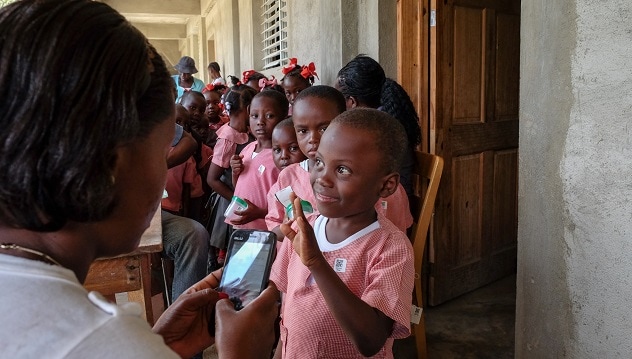
CDC’s World NTD Day Materials
NTDs are a group of preventable and treatable parasitic, viral, bacterial, fungal, and infectious diseases that affect more than one billion people globally.
Today marks World Neglected Tropical Diseases (NTD) Day, a day set aside to raise awareness and needed attention to NTDs. NTDs are a group of preventable and treatable parasitic, viral, bacterial, fungal, and infectious diseases that affect more than one billion people globally. These diseases cause devastating health and economic problems yet are not as well-known as other harmful diseases. This year's World NTD Day theme, Unite. Act. Eliminate. speaks directly to the Centers for Disease Control and Prevention's (CDC) focus. CDC is working diligently in the United States and around the world to prevent and treat NTDs and to raise awareness of challenges that continue to impede global progress toward eliminating these devastating diseases.
NTDs can wreak havoc on families and communities, causing disability that hinders school attendance, care of families, wage earning, and can often disrupt productivity in already fragile economies. Recent data show that Trachoma, an NTD of the eye, is present in 42 countries and has caused irreversible or partial blindness in nearly 1.9 million people. Additionally, Chagas disease, which can cause seizures, blindness, infertility, heart failure, and even death has the potential to affect up to 7 million people globally, including people here in the United States. Importantly, NTDs most often affect the most economically disadvantaged and unreached communities.
Yet, we remain hopeful. CDC is working to turn the tide on NTDs through the core public health principles of research, surveillance, and evaluation. With this in focus, CDC
- Researches new NTD tools and diagnostics that can enhance laboratory surveillance and optimally adapts these tools to support country implementation.
- Evaluates and trains in-country partners on the approaches that improve the coverage and distribution of safe and effective medicines, through mass drug administration, that have been proven to help eliminate NTDs.
- Develops approaches to improve surveillance and better measure NTD program impact.
But we do not act alone— partnership is vital. Due to the strong and continued global collaboration among governments, partners, academic institutions, national NTD programs, and industries' generous donations of pharmaceuticals, we've achieved enormous progress in recent decades.
- 50 countries have eliminated at least 1 NTD.
- 760 million people no longer require preventive treatment for lymphatic filariasis, a painful and profoundly disfiguring NTD caused by worms and spread by mosquitos.
- And in 2023, there were just 11 documented cases of Guinea worm disease, down from 3.5 million in the 1980s.
CDC is working with partners to not only support these successes but continue to advance the work needed to eliminate NTDs. We are doing this in lock step, supporting WHO's road map for NTDs 2021-2030, which includes three important shifts, moving from
- Measuring process to measuring impact.
- Disease-specific planning and programming to deeper integration and collaboration across sectors.
- Externally driven agendas to programs that are country-owned and country-financed.
This World NTD Day, let us acknowledge our progress as a global community and bring the much-needed attention and support to NTDs. As a community, we can work to ensure NTDs get not only the attention they deserve, but also the technical support needed to eradicate, eliminate, and intervene against NTDs worldwide. Today, let us Unite and Act together to Eliminate NTDs.
Sincerely,
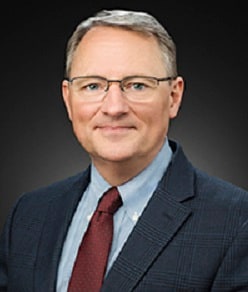
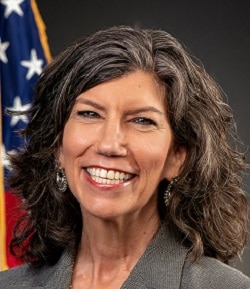
This year, we highlight an exciting mass drug administration (MDA) campaign that CDC, global partners, and the Haiti Ministry of Public Health and Population (MSPP) collaborated on in the commune of Limonade, Haiti.
This World NTD Day, we recognize the progress CDC and global partners have made over the years, as well as the future work needed to prevent and eliminate neglected tropical diseases (NTDs). This year, we highlight an exciting mass drug administration (MDA) campaign that CDC, global partners, and the Haiti Ministry of Public Health and Population (MSPP) collaborated on in the commune of Limonade, Haiti.
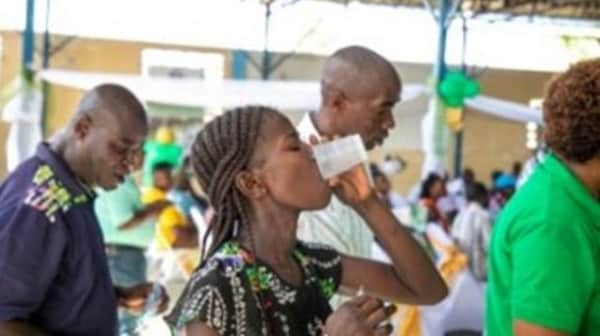
About lymphatic filariasis
Lymphatic filariasis (LF), also known as elephantiasis, is an NTD caused by tiny filarial worms (parasites) that are transmitted through the bites of infected mosquitoes. If left untreated, LF can cause chronic, painful enlargement of body parts, often resulting in stigma, inability to attend school or work, and loss of family livelihoods. Annual mass drug administration (MDA) campaigns are a key strategy to stop the spread of infection. The World Health Organization (WHO) estimates that globally, 120 million people in 72 countries are infected with LF, and over 40 million people have LF-related disability. In the Americas region, only four countries continue to have LF: Guyana, Brazil (small area of the Amazon), the Dominican Republic, and Haiti. In the Americas, about 12.6 million people are at risk of infection—90% of these are in Haiti. [1]
CDC's involvement in LF elimination in Haiti
CDC has supported LF elimination in Haiti for over 30 years, most recently with support from the U.S. Agency for International Development (USAID). In 2001, LF mapping studies found that MDA campaigns were required in all of Haiti's 140 communes. With CDC and USAID support, Haiti finally achieved national coverage in 2012 after they initiated treatment in the highly populated capital region of Port-au-Prince. Haiti's LF program has been enormously successful. Today, almost all communes (87%), representing around 7 million people (65% of Haiti's population), have been able to stop treatment because they live in communes where LF transmission has been interrupted. Despite this achievement, Haiti's NTD program faces serious challenges in the communes that remain endemic–including ongoing security issues and community fatigue for continuing treatment campaigns in the face of other health concerns.
Triple-drug strategy to treat LF
Recently, CDC-led program research in Haiti from a DOLF multi-country clinical trial, which revealed that the addition of a third drug, ivermectin, to the standard MDA strategy of diethylcarbamazine and albendazole, is a more effective drug strategy to treat LF. From 2016–2018, CDC supported Haiti in conducting a community-based randomized trial involving more than 6,000 people. The trial compared the safety and efficacy of the new triple-drug strategy with the standard two-drug strategy for LF, resulting in the three-drug strategy as a safe and more effective way to eliminate LF. Based on these results from Haiti and similar findings from a handful of other countries, WHO now recommends using the new triple drug strategy in several LF-endemic regions, including the 18 communes in Haiti that still require MDA.
A representative from the Haiti MSPP shows his support of the MDA campaign by consuming the medicines publicly to promote trust and confidence among the community.Credit: MSSP/IMA
In 2021, CDC's Division of Parasitic Diseases and Malaria (DPDM) received funding for a cooperative agreement with IMA World Health to support the Haiti Ministry of Public Health and Population (MSPP) in LF elimination efforts. A multi-disciplinary DPDM team has worked closely with the health ministry from project inception to implementation.
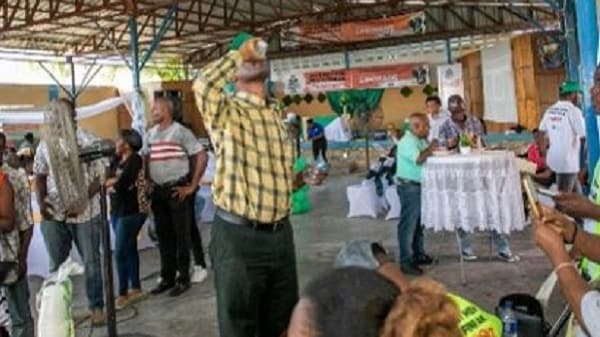
October 2023 marked the conclusion of the Haiti MSPP's MDA campaign that targeted all people at risk for LF (about 60,000 people) in the commune of Limonade in northern Haiti. This was the first time that Haiti's national NTD program implemented an MDA campaign using the new, WHO recommended triple-drug strategy as opposed to the standard two-drug strategy. The treatment campaign, launched by the health ministry leadership, occurred September 27- October 12, 2023. During this time, teams of community drug distributors treated more than 45,000 people, achieving 74% population coverage—well above the WHO coverage target of 65%.
DPDM supported Haiti's national program to focus on three strategic priorities:
- Interruption of LF transmission via implementation of triple drug therapy
- Alleviation of suffering to people affected by LF via morbidity management and disability prevention
- Strengthening LF surveillance through existing health care delivery and surveillance mechanisms
DPDM ensured that the Haiti NTD program's treatment plans were in line with the priority areas, and met country needs as well as current global strategies and minimum WHO recommendations. DPDM also helped Haiti in planning and developing micro plans, which covered information on where and how many people would need to be treated, who would deliver treatments, as well as the dosage strategy and management of severe adverse events. Moreover, DPDM helped review community mobilization, training, and data collection tools for the new MDA approach.
High level MSPP leadership participation in the IDA-MDA campaign launch event in Limonade, Haiti (September 2023).Credit: MSSP/IMA
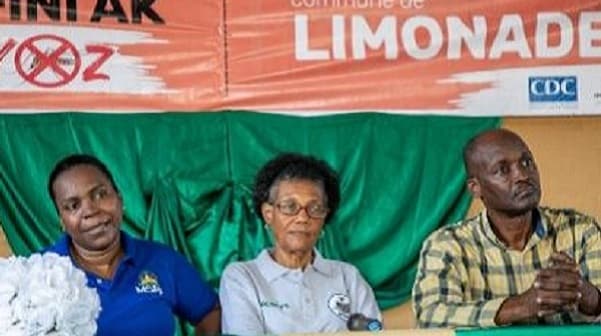
Moving forward
This milestone adds to the journey of reaching interruption of transmission via provision of MDA, which is one of the key strategies to eliminate LF as a public health problem. More LF activities continue and will be reported on in the future. Eliminating LF in Haiti is one of DPDM's strategic priorities, and CDC, along with partners such as USAID, is excited to support Haiti's MSPP to continue its impactful work on this effort.
[1] "Lymphatic filariasis in the Americas" (n.d.). Pan American Health Organization. World Health Organization. PAHO/WHO | Lymphatic filariasis in the Americas.
Resources
Neglected Tropical Diseases Fact Sheet
Download Facebook/Instagram version
Connect with us
Follow and share content from:
@CDCNCEZID Twitter
@CDCGlobal Twitter
@cdcgov Instagram
@cdcglobal Instagram
